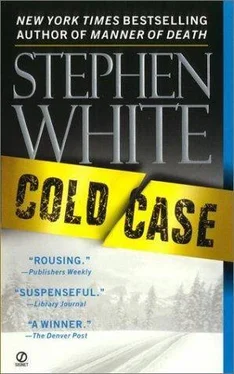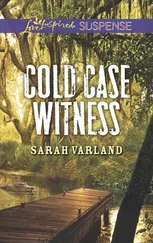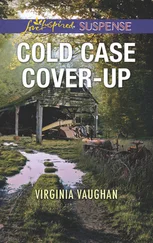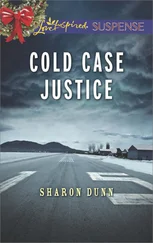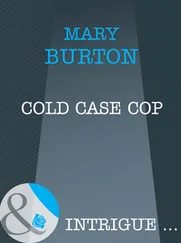Lauren called from the bedroom.
"Are you okay?"
I yelled back that I was fine. I couldn't believe it. Of course. It wasn't Tami Franklin or Cathy Franklin who had been in therapy with Ray Welle. It was Joey Franklin.
That's why Ray Welle had looked so smug while he was denying to me that he ever treated Tami or Cathy. And that's yet another reason why Ray Welle refused to see Satoshi for psychotherapy after she accused Joey of raping her.
My mental to-do list grew a little longer. I wanted to try to discover the dates of Joey's treatment with Welle. I wondered if Welle was still treating Joey when he raped Satoshi.
I'd often wondered what it would be like to be a psychotherapist in a small town like Steamboat Springs. Even in a town the size of Boulder, with over 100,000 people, lives sometimes overlapped so that the boundaries between patients' histories became blurred. In a smaller town like Steamboat, the lines would inevitably intersect like the cross-stitched threads in a piece of fabric.
Patient A would talk about patient B, who would be dating patient C, whose father would be patient As accountant, or the therapist's own golfing buddy.
And the psychologist would be alone in the middle of the mesh, entrusted with the responsibility to keep everyone's secrets from everyone else. And entrusted with the mandate not to allow what he or she might learn from one patient to influence how another is treated.
I found myself getting a headache as I tried to imagine the complications that would ensue for the small-town psychologist if patient A wasn't just talking about patient B. What if patient A was guilty of raping her?
I made a logical leap that seemed reasonable. I concluded that Raymond Welle's treatment of Joey Franklin was either ongoing or had recently been terminated when Mariko took Satoshi to see Welle after the rape. I then decided that it didn't make any difference which version was true.
In Welle's circumstances-with Satoshi literally on his doorstep accusing one of his patients, or recent ex-patients, of rape-what would I do? What ethical and legal obligations would I have as a psychologist?
Like Welle, I probably would have refused to offer Satoshi any ongoing therapeutic intervention after the emergency visit. The number of potential conflicts that would be inherent in simultaneously treating a possible rapist and his accuser was too astronomical for me to calculate. But, unlike Welle, I would have encouraged Satoshi to seek other help. At the very least, a physician should have promptly examined her. Pregnancy was an obvious concern.
Sexually transmitted disease had to be considered. And I would have referred Satoshi to a colleague for further psychological evaluation and, if necessary, treatment for the psychological consequences of the assault.
The legal issues Welle confronted were less murky than the ethical ones. Welle couldn't divulge the information he had learned from Satoshi to anyone else without her permission unless Satoshi had threatened future retribution against Joey. That was Colorado law. Without threat of future harm to some individual, Welle was sworn to maintain Satoshi's confidentiality. So Welle had been under no legal mandate to report Joey's crime to anyone.
I also considered whether Welle could have used the child-abuse exception to doctor-patient privilege to divulge the rape to the police. If Welle reasonably suspected that Satoshi had been the victim of child abuse, he was obligated to report it to authorities, confidentiality be damned. The problem with that argument was that at the time of the rape Joey Franklin was-legally, at least-a child, too. The age difference between him and Satoshi was not great enough to permit the act of sex between them to be classified either as statutory rape or as child abuse.
I tried to guess what Welle's motives might have been for not referring Satoshi to either a physician or another psychologist. It was difficult to imagine that he had concluded that such a referral wasn't warranted. By her own report, penetration had occurred during the rape, so a physical examination should have been proforma. Satoshi also admitted being quite traumatized emotionally. So why would Welle not refer her on for further assessment or treatment? The most cogent explanation I could come up with was that he wished to contain the circle of people who were aware that the rape had occurred. Perhaps Welle didn't want his colleagues in town to become aware that Joey Franklin had been accused of rape. Or perhaps he didn't want his colleagues to know that he was treating an accused rapist.
The possibility also existed that Joey had revealed his intentions about assaulting Satoshi while in psychotherapy with Welle. If that had occurred, Welle's failure to alert the police or to warn Satoshi would make him legally vulnerable.
Was Welle protecting Joey? Was he protecting himself? Was he protecting someone else?
I didn't know answers to any of the questions. And I doubted that Ray Welle would be inclined to enlighten me.
The events themselves felt jumbled. I pecked out a chronology on the laptop in an attempt to order them. I wrote:
Sometime prior to the autumn of '1988, Raymond Welle began treating joey Franklin in psychotherapy after an incident where Joey was accused of voyeurism in a girls' bathroom at his middle school. Had there been other incidents involving joey? It appears likely.
Three days before Tami and Miko disappear in the late fall of 1988, Joey Franklin rapes Satoshi Hamamoto.
That night, Satoshi tells her sister, Mariko, about the rape.
Did Mariko then confide Satoshi's secret to Tami Franklin? It would have been an awkward disclosure, since the accused was Tami's sibling. But I can't rule it out.
Two days later, Miko accompanies Satoshi on a visit to Raymond Welle's Steamboat Springs ranch.
That night-only a few hours later-Miko and Tami disappear on their way to the hot springs at Strawberry Park.
Months later, the girls' bodies are discovered near Tami's wrecked snowmobile.
The discovery takes place not anywhere close to Strawberry Park, but rather farther up the same scenic Elk River Valley that is home to the ranches of both the Welles and the Franklins.
No matter how I looked at it, Raymond Welle was right in the middle of everything and everybody. He had treated Mariko in psychotherapy. He was, or had just concluded, treating Joey Franklin, which meant he'd had professional contact with at least one of Joey's parents. Probably both of Joeys parents. At Mariko's urging, he had just completed an emergency session with Satoshi. In fact, Welle seemed to have an established relationship with everyone involved in the conundrum with the possible exception of Tami Franklin.
What else was going on in Steamboat during that three-day period in the late autumn of 1988?
In 1988, Phil Barrett was sheriff of Routt County.
Gloria Welle was raising her horses.
Raymond Welle was running a successful small town psychology practice and toying with starting a radio show. Maybe he was already dreaming of running for Congress.
And something else. What? I didn't know. But something else must have been going on, too.
And now, years later? Satoshi Hamamoto feared that someone might try to silence her. Why?
I could think of only one answer. Someone wanted to keep her from accusing Joey Franklin of a very old rape. Was that enough of a motive?
To me, it didn't seem sufficient.
If Satoshi ever went public with her accusation, which seemed unlikely, Joey could just deny the story. If the national media picked up the allegation, Joey might suffer some temporary damage to his reputation, but he would survive it.
Professional athletes are routinely accused of criminal activities and their careers seem to proceed unhindered by the charges. In fact, their careers often proceed unhindered by a subsequent conviction.
Читать дальше
